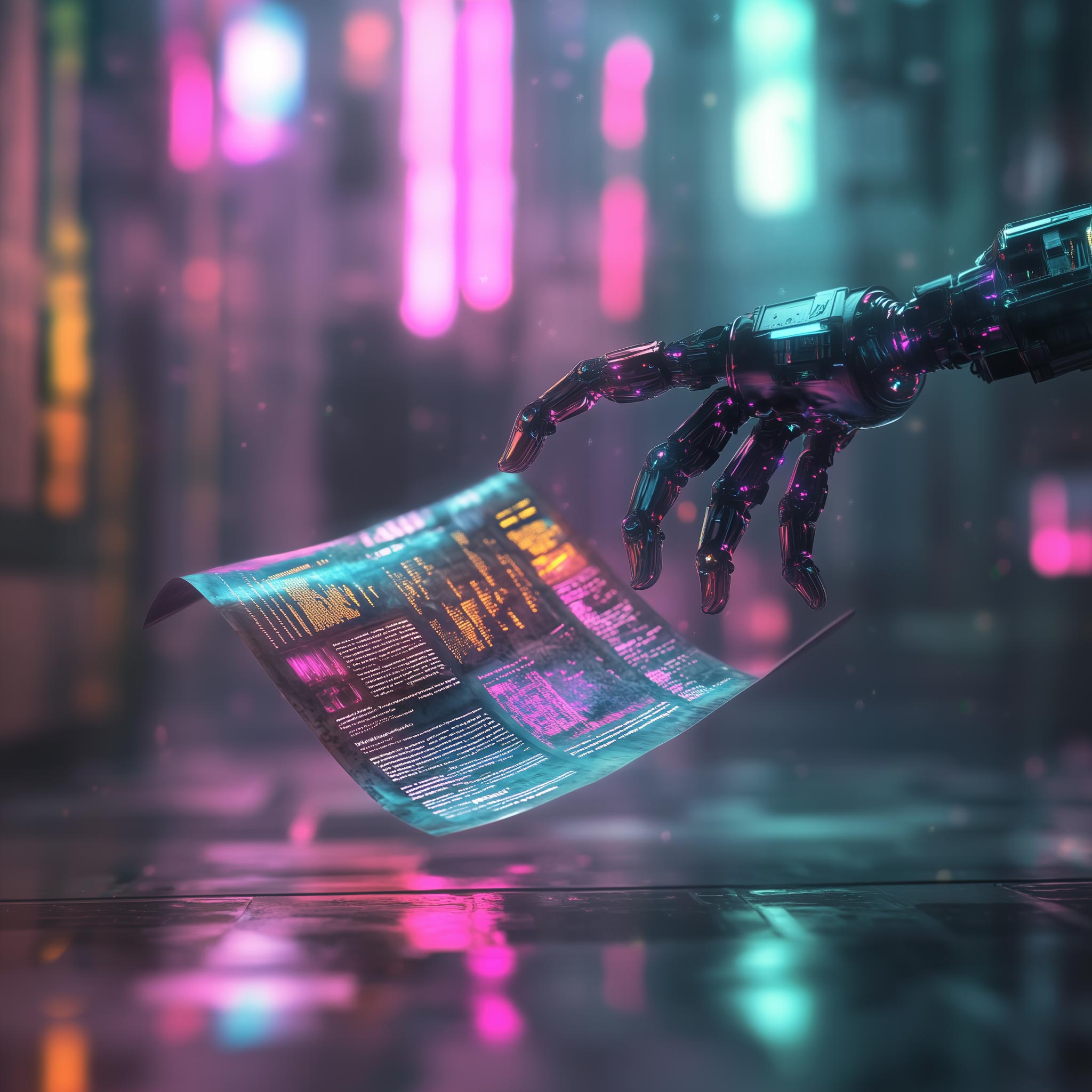The world of AI moves at breakneck speed. Blink, and you might miss the latest breakthrough—or the latest existential crisis about AI taking over the world. From Google’s Gemini upgrade to AI-published research papers, it’s been a wild week. So, grab a coffee (or a glass of wine, if you prefer to process AI news with a bit of liquid courage), and let’s dive in.
AI: Smarter, Faster, and More Questionable Than Ever
Google’s Gemini 2.0: Search, but Make It Omniscient
Google has supercharged its AI Overviews in Search with Gemini 2.0, meaning you can now ask it about advanced coding, complex maths, and multimodal searches. In other words, the days of scrolling through 10 different Stack Overflow threads may soon be over. However, don’t be surprised if Gemini 2.0 still confidently hallucinates an answer every now and then.
AI Sniffs Out Bias at the LA Times
The LA Times is now using AI to slap a “Voices” label on opinionated articles. While this may make media bias more transparent, one has to wonder: who watches the AI watchdog? If AI starts labelling everything as “biased,” what happens to those juicy, outrage-inducing headlines we all pretend not to enjoy?
AI Scientist Publishes Peer-Reviewed Papers (No, This Is Not Sci-Fi)
Autoscience Carl, the world’s first AI scientist, just published its papers in a peer-reviewed journal. Does this mean AI is replacing researchers? Not quite. However, if Carl starts submitting grant proposals, human academics might need a backup plan.
MIT’s Robots Are Now Correctable in Real Time
MIT researchers have developed a system that lets humans correct a robot’s actions as they happen—kind of like a sci-fi version of “Simon Says.” The goal? To make robots less “oops, I dropped your grandmother” and more “got it, I’ll be gentle.” Handy for everything from surgery to assembling IKEA furniture.
AI Predicts Protein Fragments for Drug Discovery
MIT has also rolled out FragFold, an AI system that predicts protein fragments for drug discovery. Translation: AI is now a pharmaceutical matchmaker, helping researchers speed up the process of finding treatments for diseases. Just imagine if AI could also predict which vitamins actually work—now that would be useful.
The U.S. Air Force’s New AI-Driven Combat Aircraft
Meet the YFQ-42A, an AI-powered fighter jet that will assist human pilots in combat. While it’s a big step for military tech, let’s hope the AI doesn’t pull a “Microsoft Clippy” moment in battle—”It looks like you’re trying to launch a missile. Need help?”
The Race for AGI: Where Are We Now?
Alibaba Joins the AGI Race
Alibaba has launched QwQ-32B, its latest AI model, which is smaller and cheaper to run than its competitors. The AGI arms race between the U.S. and China is heating up—because nothing says “progress” like building artificial brains at a discount.
Sergey Brin’s Workaholic Approach to AGI
Google co-founder Sergey Brin has reportedly urged AI developers to work 60-hour weeks to stay ahead in the AGI race. Because nothing says “Let’s build superintelligence responsibly” like a team of overworked engineers running on caffeine and regret.
OpenAI’s GPT-4.5 Has “Taste” (Whatever That Means)
Experts are baffled by OpenAI’s GPT-4.5, which supposedly has “taste” and “aesthetic sensibility” but no groundbreaking benchmark results. If AI can develop a sense of taste, does that mean it’ll finally start recommending good wine pairings?
AI Model Mimics Human Conversation—Too Well?
Sesame’s latest conversational AI is apparently so natural that people can’t tell it’s not human. Great for customer service, terrible for avoiding robocalls. Expect more convincing, “Hi, this is Sarah from ‘Your Bank’” scams soon.
AGI Might Arrive by 2026 (Or Not)
Experts have wildly differing predictions on when AGI will happen—some say 2040, others say 2026. Either way, we should probably start thinking about what we’re going to do when our computers are smarter than us.
ASI: The Smartest (and Scariest) AI Frontier
ASI in Healthcare: The Ultimate Doctor?
ASI could revolutionize healthcare by personalizing treatments and diagnosing diseases faster than humans. That sounds great—until you realise that your future doctor might be a sentient algorithm that prescribes “turning it off and on again” as a cure.
Will ASI Make Us Obsolete?
With the potential for extreme automation, ASI could either free us from work or make us completely redundant. If AI handles all the thinking, what will we do? Perhaps AI-powered wine tasting is the future we should aspire to.
The Existential Crisis of ASI
Will ASI eventually decide that humanity is a liability? Or will it become the best butler we’ve ever had? Either way, ensuring AI aligns with human values is more important than ever—unless we want Skynet as our future boss.
Final Thoughts: A Future Worth Watching (or Bracing For)
This week has been another rollercoaster in AI, from the rise of robotic scientists to AI-generated “taste.” While some developments are exciting, others are mildly terrifying.
If you’re in the AI industry, buckle up. If you’re not, maybe pour yourself a drink and enjoy the show from a safe distance. Either way, AI is here to stay—and it’s only getting smarter.
Cheers to the future, and let’s hope it includes AGI breakthroughs and good wine recommendations.



